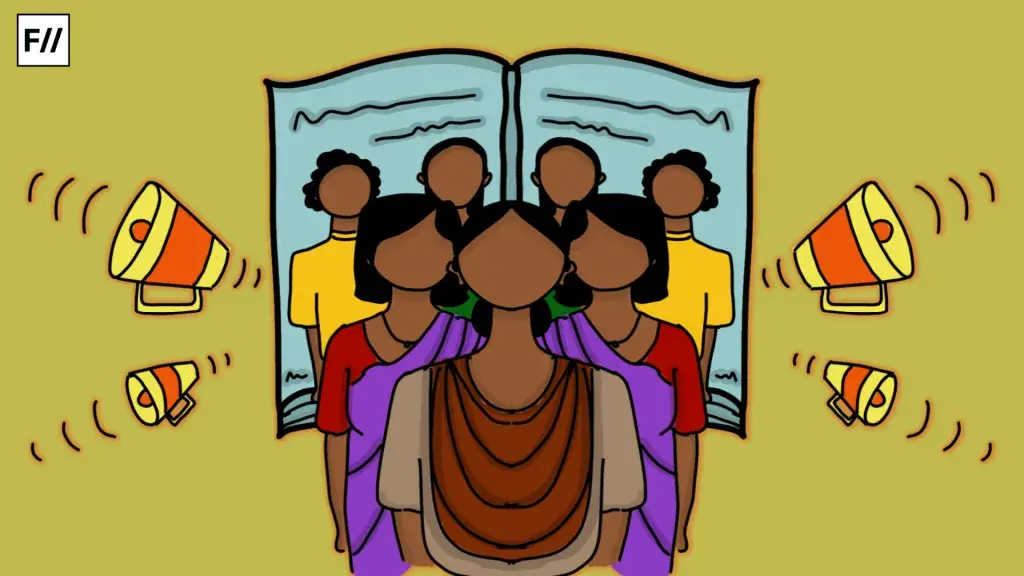Reading Dangerously is not meant to be a soothing book but a thought-provoking one; it is meant to stir us out of our assiduousness and provoke us into thinking again; the book reminds us desperately that the truths in fiction can challenge and stir and that great books have the power to transcend prejudices and hate.
Structured as letters to her late father Azar Nafisi turns to James Baldwin, Margaret Atwood, David Grossman, Elias Khoury, Salman Rushdie and Zora Neale Hurston, among others, to try to make sense of the world we live in today, to illuminate how great books can be beacons of change and hope and can inspire and push back against forms of hate and prejudice in a diminishing democracy or a totalitarian regime. They were composed during the Trump presidency, as the pandemic and the murder of George Floyd have perturbed the body politic and the individual psyche in the United States.
Reading Dangerously is not meant to be a soothing book but a thought-provoking one; it is meant to stir us out of our assiduousness and provoke us into thinking again; the book reminds us desperately that the truths in fiction can challenge and stir and that great books have the power to transcend prejudices and hate.
The letters are cogitations on the role of humanistic books in places torn by polarisation and conflict, but they also, through flashbacks, draw us to Nafisi’s home country of Iran and the similarities between the totalitarian regime and her adopted country, the United States. Nafisi engages us in a correspondence with her Baba Jan grounded by literature as she wrestles with tyranny—seeking comfort in stories as talismans she has always considered her ‘portable home’.

There is a thread that connects the literature that moves her and us, and that thread is empathy and admiration for individuals who grab the reins of their own life even after facing horrific and truly traumatic circumstances and are able to rise above and find meaning in their lives “Great works of literature—works that are truly dangerous—question and expose the dictatorial impulse, both on the page and in the public space,” she writes.
Nafisi tackles many important questions in her letters to her father, and she does this with literature; she starts with “the allure and dire threat of totalitarianism” which exemplifies her life under the fanaticism of the Islamic Regime of Iran and with the rise of Donald Trump in America, she dives into Salman Rushdie’s Satanic Verses, Plato’s The Republic and Ray Bradbury’s Fahrenheit 451, her thoughtful and engaging argument through her letters will leave her readers nodding in agreement.
Azar Nafisi talks about the feelings of despair and frustration through the literature of Zora Neale Hurston and Toni Morrison by weaving her anguish and despair over state-sponsored violence in Iran that killed hundreds of people in 2020.
In other letters, she talks about “the dehumanisation and hatred that are intrinsic parts of war,” for this she considers the brilliant writers David Grossman and Elias Khoury as she talks about the destruction of war; this letter is tinged with hope and melancholy as she remembers the war between Iran and Iraq and writes that her memories of that time are “Saturated with fear, with anticipation and with disaster.” The arguments that she poses to her father are heartfelt and personal.
Nafisi tackles many important questions in her letters to her father, and she does this with literature; she starts with “the allure and dire threat of totalitarianism” which exemplifies her life under the fanaticism of the Islamic Regime of Iran and with the rise of Donald Trump in America, she dives into Salman Rushdie’s Satanic Verses, Plato’s The Republic and Ray Bradbury’s Fahrenheit 451, her thoughtful and engaging argument through her letters will leave her readers nodding in agreement.
When Nafisi talks about Feminism and COVID-19 pandemic, she takes us through it by devoting most of the letter to the Handmaid’s tale by Margaret Atwood; she talks about the totalitarian government in the Handmaid’s Tale and the role of women in the novel and connects it with her experiences in Iran in a totalitarian regime, these dystopian novels lead Nafisi to consider ways in which inhumanity becomes normalised and accepted. In her final chapter Nafisi talks about the murder of George Floyd and the protests that followed through the lens of James Baldwins literature.
The letters are a meditation about her experiences in both Iran and America and how America, for the first time, has made her feel the same despair and angst she felt in Iran against the regime; her focus is fiction because, as she rightly says people have forgotten the power of books and fiction and most people particularly in America read for comfort and escapism, to confirm their prejudices and presuppositions. Her focus is Challenging literature, thought-provoking literature and literature that makes you feel uncomfortable because that is what reading dangerously is all about to read fiction and think, to debate and question and protest.
Azar Nafisi reminds us what the magic of books is all about. A brilliant, heart-wrenching book that teaches us to question and debate and to read dangerously in a world that wants compliance and subjugation.
But what is so magical about Nafisi’s book to me is the universality in her letters; though she talks about U.S.A and Iran, it conjures up images of other diminishing democracies and totalitarian governments, it reminds me of India that Democracies, too, can develop totalitarian traits and be seduced by totalitarian figures. “When we stop reading, we pave the way toward book burning;…when we prefer personality to character, and reality show or virtual reality to reality itself, then we get the kind of politicians we deserve.”
“Books know no limits or borders, they create longings and unexpected passions, they pose more questions than answers. They represent the unruly world, filled with contradictions and complications, a world that threatens the totalitarian mindset by being beyond its control.”
“Books and stories have been my talismans, my portable home, the only home I could rely on, the only home I knew would never betray me, the only home I could never be forced to leave. Reading and writing have protected me through the worst moments of my life, through loneliness, terror, doubt, and anxiety.”—Azar Nafisi.
Also read: It Has No Name: Payal Dhar’s Slightly Underwhelming Take On A Queer Teen’s Life
Reading Dangerously is a brilliant heartwarming, and inspiring book, a voracious reader’s paradise, and acts as a reminder to all readers of the power of words and the power of books, the message that books send out to the world and its people.
A book is a magical thing; it unites people like no other thing ever will; it brings together people from different backgrounds from different places with an idea, a magical place and a beautiful story that fills you up to the brim with hope and humanity a book has the power to inspire, to unite and to remind us that even in the darkest of times there is hope and Azar Nafisi’s reading dangerously is a reminder of the magic of a book it reminds readers that reading is a form of protests in a diminishing democracy or in a totalitarian regime it is important to read dangerously because to read dangerously is to protest, it is to live and through a book unite people to come and discuss ideas, to debate and to love together. Reading remains a powerful and subversive activity that, as Nafisi rightly claims, offers us a chance to reflect and transcend prejudices. It is a must-read book that makes you begin thinking again.
Also read: Queer Politics In India: Towards Sexual Subaltern Subjects By Shraddha Chatterjee | Book Review
Featured image source: WHYY
About the author(s)
Zeba Vagh is pursuing her degree in screen writing from Whistling Woods Mumbai International. An aspiring writer, her work has been published with the Live Wire. She can be found on Instagram.




